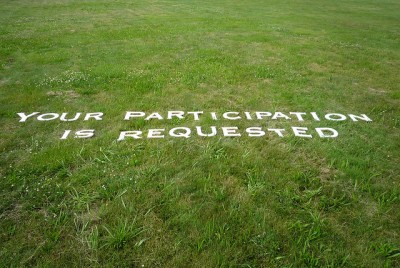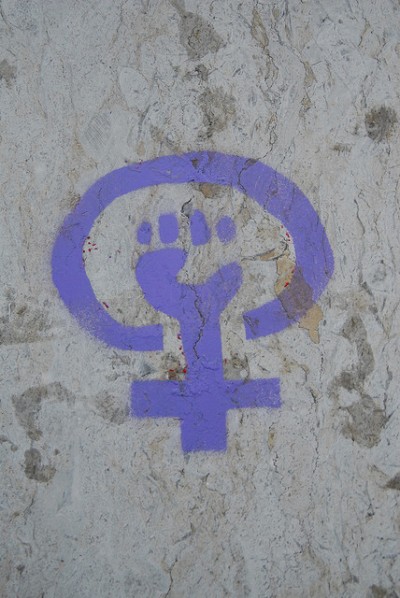Engender blog
All of Engender’s latest news. Reports, reviews, books, articles, and information from across Scotland’s women’s sector.
We would love to hear from other feminists around Scotland. Check out our guidelines for more information on how you can blog for us.
Constitutions work wrap-up
 The referendum and subsequent invigorating
deadlines set down by the Smith Commission have been keeping us policy types
busy these past few months.
The referendum and subsequent invigorating
deadlines set down by the Smith Commission have been keeping us policy types
busy these past few months.
Tomorrow we will be publishing our submission to the Smith Commission on further devolution and, although we will continue to engage with latter stages of the process, this will draw a close to our Scotland’s Futures advocacy and engagement work. Here, then, is a quick look at what the final stages of the project have entailed and how this links to future plans.
Women and the draft Scottish budget 2015-16
 One of the things that Engender does that we're nerdily excited by, is to provide support to the Scottish Women's Budget Group. Some of our staff and members are long-time members of the budget group, and it's always a pleasure to get together with them to talk about Scotland's budget.
One of the things that Engender does that we're nerdily excited by, is to provide support to the Scottish Women's Budget Group. Some of our staff and members are long-time members of the budget group, and it's always a pleasure to get together with them to talk about Scotland's budget.
The draft Scottish budget for 2015-16 was published on October 9th, and the SWBG convened an open meeting to discuss it that took place on Tuesday. Participants heard from Leaza McSorley on Scotland's economy, Emily Thomson on feminist economics, and Angela O'Hagan on gender budgeting, before digging in to the budget itself.
Smith Commission: problems and possibilities for women's equality
 The Smith Commission website is as spare as a fledgling campaign website. It serves as an indicator of the hasty birth of the Commission itself; set up in a scramble following the independence referendum No vote.
The Smith Commission website is as spare as a fledgling campaign website. It serves as an indicator of the hasty birth of the Commission itself; set up in a scramble following the independence referendum No vote.
Smith's purpose can't easily be aligned with its timescale. After a season of weighing the possibilities of independence, in which participation has flourished across Scotland, the brevity of the Commission's timetable means a return to the old ways. The political parties have already made their submissions, and civil society has only another couple of weeks to contemplate the powers it would see transferred to Holyrood and make its case. Awkwardly, the deadline for civil society submissions is the same as the date that the UK Government command paper will be published.
Guest Blog: Intersectionality

In this week's guest blog post Richa Okhandiar writes about her experience of intersectionality in Scotland.
When I first came across the concept of intersectionality – it blew my mind.
I became actively interested in feminism around the age of 15 through being influenced by my older sister, discovering riot grrl and kickass role models in music and art who challenged gender norms a la Kathleen Hanna, Brody Dalle, and Carrie Brownstein. It was a complete age of discovery – I loved that there was this movement that accepted women as people who could be talented, thoughtful, screw-ups and genuine bad asses. Feminism and I just clicked, we were meant to be, it was fated.
There was always one drawback for me – all of the feminist icons I would read about, see in music and be heralded as role models were pretty much always white. It was always a bummer that I never saw anyone that looked like me or that my experience as a women had to be drawn from the Western, middle class part of my identity rather than the second-generation Indian born person born and raised in the UK. Even when I went to university and continued my education into feminism it became evident that the vast majority of accessible mainstream writing was all from one perspective. So I'll say it again, when I first came across intersectionality – it blew my mind!
Engender's response to the indyref result

Scotland has decided, 55% to 45%, to remain part of the UK and not to be an independent country.
The implications of this are unfolding in real time, and we have already heard from politicians from across the political spectrum at Westminster this morning about a process to review and enhance Scotland's devolution settlement.
Engender has been neutral throughout the referendum campaign, but we have created space for our members and women in Scotland to discuss different constitutional futures. We know that amid the flourishing of democratic participation that this campaign has provoked, has been a heartfelt desire on the part of many to realise women's equality in Scotland.
We will be taking part in any process accessible by us to discuss the devolution settlement. We will involve our members in the detail, but will advocate for the following things:
- Women's equal participation in discussions and structures that determine any new settlement.
- Discussions in which gender is considered as a factor, whether that is in considering the implications for new powers on care and childcare, on women's unpaid work, on women's political representation, on violence against women, on women's labour market equality, or on women's human rights.
We would like to congratulate our members who have campaigned for a Yes or No, Thanks vote. You have engaged women and girls, and all of the people of Scotland, in ways that we hope will not be undone.
Downloads
 Engender Briefing: Pension Credit Entitlement Changes
From 15 May 2019, new changes will be introduced which will require couples where one partner has reached state pension age and one has not (‘mixed age couples’) to claim universal credit (UC) instead of Pension Credit.
Engender Briefing: Pension Credit Entitlement Changes
From 15 May 2019, new changes will be introduced which will require couples where one partner has reached state pension age and one has not (‘mixed age couples’) to claim universal credit (UC) instead of Pension Credit.
 Engender Parliamentary Briefing: Condemnation of Misogyny, Racism, Harassment and Sexism
Engender welcomes this Scottish Parliament Debate on Condemnation of Misogyny, Racism, Harassment and Sexism and the opportunity to raise awareness of the ways in which women in Scotland’s inequality contributes to gender-based violence.
Engender Parliamentary Briefing: Condemnation of Misogyny, Racism, Harassment and Sexism
Engender welcomes this Scottish Parliament Debate on Condemnation of Misogyny, Racism, Harassment and Sexism and the opportunity to raise awareness of the ways in which women in Scotland’s inequality contributes to gender-based violence.
 Gender Matters in Social Security: Individual Payments of Universal Credit
A paper calling on the Scottish Government to automatically split payments of Universal Credit between couples, once this power is devolved to the Scottish Parliament.
Gender Matters in Social Security: Individual Payments of Universal Credit
A paper calling on the Scottish Government to automatically split payments of Universal Credit between couples, once this power is devolved to the Scottish Parliament.
 Gender Matters Manifesto: Twenty for 2016
This manifesto sets out measures that, with political will, can be taken over the next parliamentary term in pursuit of these goals.
Gender Matters Manifesto: Twenty for 2016
This manifesto sets out measures that, with political will, can be taken over the next parliamentary term in pursuit of these goals.
 Scottish NGO Briefing for UN Special Rapporteur on Violence Against Women
Joint briefing paper for the UN Rapporteur on Violence Against Women.
Scottish NGO Briefing for UN Special Rapporteur on Violence Against Women
Joint briefing paper for the UN Rapporteur on Violence Against Women.

Newsletter
Sign up to receive our newsletter here:
Sign up to our mailing list
Receive key feminist updates direct to your inbox: